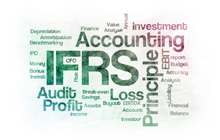Has auditing become obsolete?

A new column from forensic accountant Dr. Al Rosen questions the relevance of auditing, particularly to investors
OVER the past 30 years in Canada, external auditors have significantly narrowed their liability exposure to claims by investors that they gave clean audit reports on materially misleading financial statements. Liability, the responsibility for financial misstatements, has been passed on to others, such as boards of directors. Meanwhile, primarily because of IFRS, investors have found it more difficult to find worthwhile and credible financial information.
Have external auditors painted themselves into a corner? Disclaiming responsibility in many cases, such as looking for unfair related party transactions, leads one to ask just what are external auditors claiming is their expertise, legal obligation and role in Canadian business?
A mismatch has arisen between what investors need and what external auditors are willing to offer. Unless securities acts are revised, legislated audit requirements are at risk of becoming costly nothings, as far as investor protection is concerned.
Who is ultimately responsible for materially misleading financial statements?
Securities cases that address these crucial accounting and auditing issues have virtually vanished from the courts. Lawmakers have permitted auditors and accountants to write their own easy-to-circumvent obligations, such as with IFRS. In turn, auditors have seriously restricted their responsibilities to detect frauds and most control weaknesses, self-dealing thievery, and various liquidity deficiencies in companies.
By far the strangest auditor attempt at buck-passing has brought deep, self-inflicted damage. Auditor-introduced IFRS thoughtlessly dumped 60-plus years of old Canadian GAAP, including many specific and protective prohibitions, and brought an attitude of management freedom to financial reporting. The effects are badly comprehended by most Canadians, which leads to a deficient and unbalanced investing environment.
The differences in philosophy between IFRS and old Canadian GAAP are tremendously alarming. The notion of separately reporting third-party, settled transactions to investors is either seriously downplayed or too often is ignored by IFRS. Yet, for centuries, such reporting has been the very essence of allowing public corporations to exist — the obligation to inform shareholders of what “actually happened.”
The focus of financial reporting in Canada thus has materially shifted from attempting to account for recent third-party settled transactions to one of letting corporate management include, in audited numbers, its optimistic, biased and largely unsubstantiated view of the future. What actually happened in an entity’s most recent period is repeatedly obscured under IFRS.
Further, loose IFRS often allows corporate management assumptions and choices to be rubber-stamped, simply because IFRS permits management “guesstimates.” Consequently, the traditional role of the auditor in society simply vanishes. What is left is management’s opinion of itself, as well as huge opportunities for unwarranted executive bonuses. The declaration that figures have been “audited” is misleading and dangerous to ill-informed investors.
Why bother to audit accounting that is deeply flawed, multi-directional and absent of the many specific rules that prohibit known financial tricks? IFRS is so divorced in scope from an entity’s operating cash flows that it often borders on aiding securities frauds.
Lawmakers and securities regulators must wake up to the severe lack of utility in audited financial statements in Canada. And our profession must recognize that the dire consequence of impunity is irrelevance.
Dr. Al Rosen, FCA, FCMA, FCPA, CFE, CIP and Mark Rosen, MBA, CFA, CFE, provide independent, forensic accounting investment research to investment advisors and institutional portfolio managers. Learn more at Accountability Research Corporation and Rosen & Associates Limited.
The views and opinions expressed by contributing writers to Canadian Accountant are their own. Canadian Accountant and its parent company bear no responsibility for the accuracy and opinions of contributing writers.







(0) Comments